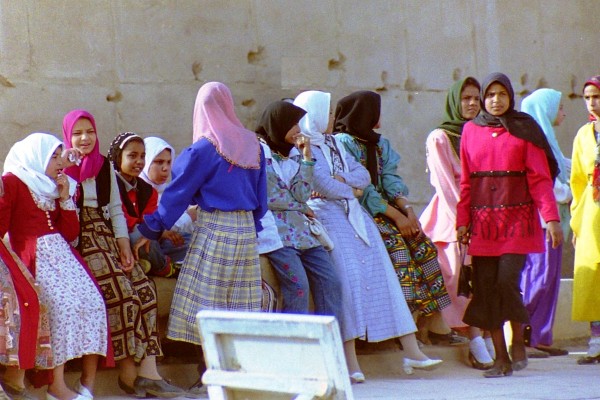By: LAMA EL DANKI AND MARIAM MAZHAR
@Ledanki @MariamMazhar339
![Egyptian public schoolgirls dressed in traditional attire are in stark contrast with the image found in most private institutions [Marked for re-use]](http://www.auccaravan.com/wp-content/uploads/2016/12/1995_in_Egypt._Schoolgirls_with_hijab_at_Temple_of_Isis_Philae._Spielvogel-e1481108831296.jpg)
This, however, comes at the expense of other factors, most notably the lack of adequate Arabic language instruction.
Some have voiced concern that these schools, which employ Western paradigms of education, limit the students’ exposure to their own culture and traditions.
This then puts parents in a difficult position – how to ensure the highest quality of education without raising children that are alienated in their own society.
“We have no other choice, I think. Every parent is obliged to invest all that they can in their children’s minds. These minds are our future, and international schools bring up our children with excellent knowledge,” says Rania Gaafar, a mother of a 12-year-old girl studying at Modern English School (MES).
She acknowledges that her daughter may be “losing her identity” but believes that with globalization the whole world is now shifting into a singular, Western-influenced model.
When one considers that these young students spend between eight to nine hours at school, learning and adapting to certain behaviors and patterns influenced by American or British customs, the challenge becomes how to help students reconcile the multiple cultures they absorb.
When parents at home attempt to immerse their children in ‘Egyptianness’ a disconnect between the two generations emerges.
Nowhere is this more visible than in the declining aptitude of their Arabic language skills.
“They are completely capable of understanding the slang Arabic language but if the text included terms that are old or that they do not use, they find great difficulty in comprehending it,” Associate Professor at the Department of Arab and Islamic Civilizations Hassan Hamouda told The Caravan.
“Up until the 10th grade, Arabic was supposedly taught as a first language but as usual no one really cared about learning Arabic literature and no one ever liked the grammar lessons so we’d just be happy with passing the class,” Oasis International School graduate Asser Hangal said.
Mohamed Zakaria, director of the Arabic Department at the International School of Elite Education, believes that fault lies within school administrations that do not give the Arabic language enough attention.
“Schools focus on subjects that boost a student’s chance of enrolment in university, but do not factor Arabic in the final assessment,” Zakaria told The Caravan.
Rasha Saleh, an Arabic teacher at an international school in Cairo, says the problem of Arabic improficiency goes beyond the classroom.
“Children are even using English at home with their parents. I have students who cannot actually spell out their names in Arabic … If we continue like this, generations will not only lack their Egyptian identity but will also replace their language with foreign languages,” she warned.
However, many students we spoke to blamed school management for not enforcing a more rigorous level of Arabic language instruction.
“When we had an Arabic class the teacher would come and tell us, ‘I know you don’t care about this subject because you don’t need it for your score to enter universities’ and then he would sit and do nothing,” Mansoura College American Diploma graduate Passant Khodeir told The Caravan.
Some students graduate from international schools having to face the fact that not all majors are taught in private universities, like medicine for instance.
Many of them might therefore face a lot of difficulties dealing with a different type of educational culture or environment if they switch to Cairo University or Ain Shams University, to name a few.
